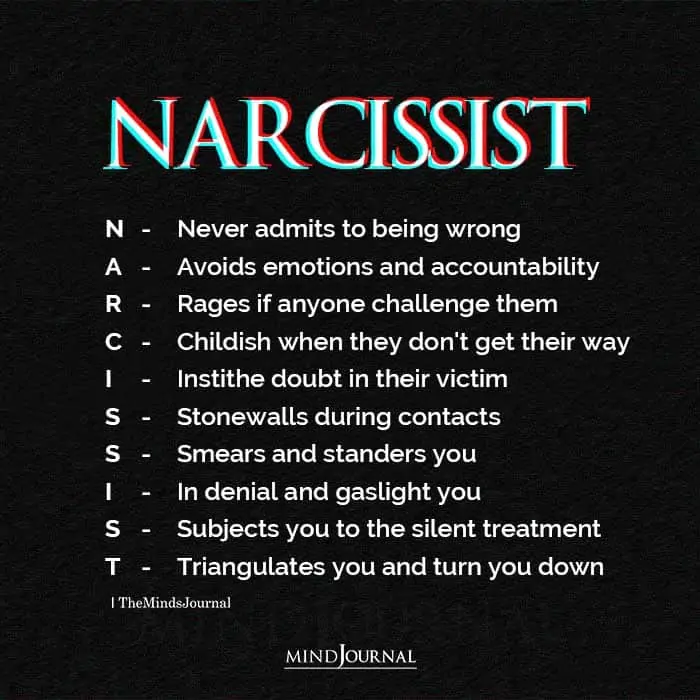Not many people know this, but there are different kinds of narcissism, out of which covert and grandiose narcissism are two of the most well-known out there.
One of the most challenging concepts about narcissism is its many different facets. Much like its fellow Cluster B afflictions of antisocial, borderline, and histrionic personality disorders, narcissistic personality disorder is a notoriously difficult condition to diagnose.
The good news is that a diagnosis is not necessary to move on from an abusive partner and begin the work of personal healing. Identifying the traits of a narcissistic individual and learning how to respond and protect oneself is far more likely and possible than achieving a full-blown clinical diagnosis. Sadly, even if someone is diagnosed as a narcissist, change is extremely difficult. The term and label of “narcissist” should not be thrown around lightly, but it’s an unfortunate fact that the traits of narcissism are prevalent.
Narcissists are the chameleons of human nature. They can project the image of their choosing to fit into a variety of situations or social circles. For example, a typically dominant and aggressive person can present a broken and vulnerable persona if it means they will achieve their needs and wants. Gaining and maintaining control is the driving desire for any type of narcissist.
Personality theorists believe that narcissism can be broken down into two main types: covert/fragile narcissism and grandiose/malignant narcissism. The prominent personality traits are what differentiates a covert narcissist from a grandiose narcissist. These subtypes and accompanying traits can and do overlap, supporting the comparison to chameleons. However, by understanding the structure of the façades, one can learn to dismantle the threats and become immune to the abuse.
Both types of narcissism share core features of arrogance, lack of empathy, and a self-indulgent focus on the self. It is how those traits are expressed that identifies an individual as fragile or malignant. By identifying the characteristics that make up the narcissist’s structure, abused victims can prepare for how they might be treated.
Anticipation plays a major part in heightened anxiety as the mind and body are both in a constant state of preparing for a confrontation. By anticipating how the narcissist will act, you can not only cope with unnecessary stress but even protect yourself from future attacks.
Related: 7 Signs Of A Female Narcissist
Grandiose Narcissists
These narcissists are the classic image and representation of the personality disorder: they are exploitative, adrenaline-seeking, and carry with them an intense air of entitlement wherever they go. These individuals have high self-esteem to disguise their self-hatred and aren’t afraid to show off or brag to keep up the charade. They are boastful, vain, and arrogant (“I can get any man I want.” I don’t need you, you need me!”).
Grandiose narcissists have low dependence on friends, family, or lovers and avoid true emotional closeness. These chameleons can give the appearance of a devoted spouse or attentive friend (think social media and photo accounts), but the focus of the relationship will always be solely on them.
Grandiose narcissists may depend on another person for a reason but never for an emotion beyond needs fulfillment. If a narcissist is in a relationship it is almost always for a self-serving reason: power, proper appearances, connections, or service the partner provides. Instead of the relationship consisting of equal give-and-take or shared support, the narcissist expects to be served and placated but will never feel sated.
As a result, the demands can increase exponentially, and the partner will begin to fall from favor and forever be scrambling to please. When the narcissist is not being treated exactly as they demand or the service stops producing the desired results, they will explosively react. A breakup will not derail a narcissist for long because they simply move on to their next victim or producer. The partner left behind, however, is the one left with a monumental mess to clean up and heal from.

Covert Narcissists
Covert narcissists are also referred to as vulnerable narcissists. Like grandiose narcissists, coverts have low self-esteem; however, this is where the similarity ends. Grandiose narcissists hide their fragility with bombastic exteriors and arrogance while coverts embrace it and use it as their exploitative tool to elicit sympathy and attention.
This less obvious type of narcissism is hidden behind shyness. Coverts are highly sensitive to criticism, prone to depression and anxiety, and love to share their woe-is-me tales with anyone who will listen.
Coverts are very possessive of their friends, family, children, and partners. A covert narcissist may not want to remain married to their spouse and even move out and date other people but will be furious if the partner files for divorce or if he himself begins dating (“How dare that woman go out with my husband!”). The mentality of “do as I say, not as I do” is particularly strong with covert narcissists because of their possessiveness and high emotional needs. They will manipulate their children, friends, and family members in order to keep them loyal to only themselves.
These individuals harbor expectations of grandiosity and desirableness and will adjust the narrative to fit these expectations. For example, society considers adultery to be wrong and immoral. If a covert narcissist is called out on their affair, the blame is placed on the ex-partner for allegedly driving them to cheat and is therefore admissible. Alternately, the covert may accuse their partner of cheating if the partner mentions a female coworker after a day at the office and bring sympathy upon themselves.
Related: What Is A Covert Narcissist?
Covert narcissists are incredibly hypersensitive and passive-aggressive. They believe they deserve something — power, attention, forgiveness — but they are being unjustly denied or do not want to do the necessary work in order to achieve the end goal. These individuals believe they are better than other people but are being unfairly held back and will respond with resentment and grudges. It is far easier to blame other people than to point the finger at oneself.
In the end, it is impossible to fulfill a narcissist. This is not a reflection on the partner, but rather the grandiose narcissist themselves. There is no love or genuine affection; nothing is ever good enough, and when something is pleasing to the narcissist it doesn’t last very long. The feelings of inadequacy and incompetence deeply hurt the victim by eroding their self-esteem.
If they truly love the narcissist, they will do anything within their power to please with no reward. It is a painful and abusive cycle that has the potential to shatter one’s self-worth. Children and spouses of narcissists all say the same thing: I was never good enough. Counseling, self-reflection, and stopping contact are all ways to reclaim yourself and heal.
Abuse can disguise itself as love, but love is never abusive.
Written By Kristy Lee Hochenberger Originally Appeared In Psychology Today










Leave a Reply
You must be logged in to post a comment.